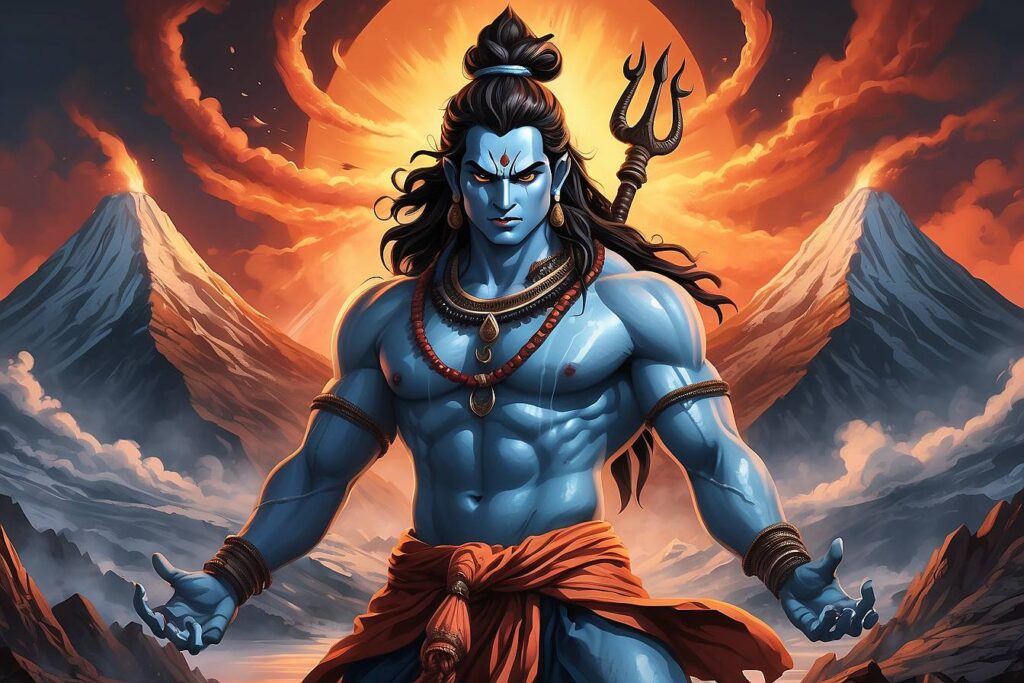Who is More Powerful: Vishnu or Shiva? Exploring Their Spiritual Powers
If you’re wondering who is more powerful, Vishnu or Shiva, you’re not alone. This age-old question is a central theme in Hindu mythology, spirituality, and especially tantric traditions. Both Lord Vishnu and Lord Shiva are among the most revered deities in Hinduism, representing different aspects of the divine and cosmic balance. But when it comes to power, how do they compare? This blog post explores their unique spiritual roles and powers from a tantric perspective.
The Nature of Shiva: The Ascetic God Beyond the Material World
Lord Shiva is often described as the ultimate ascetic and master of meditation. He symbolizes detachment from worldly desires and deep spiritual transformation. In tantric traditions, Shiva is revered for his constant state of samadhi—a profound meditative absorption where he remains aware yet detached from the physical world. This grants him immense spiritual power that transcends material existence.
Shiva’s image as a yogi sitting on Mount Kailash or in cremation grounds highlights his connection to renunciation and cosmic destruction for rebirth and renewal. As Bholenath, he is compassionate, blessing even those who falter morally. Shiva’s tantric sadhana (spiritual practice) focuses on awakening the inner self, helping devotees master their mind and energies.
His power is subtle but transformative, offering spiritual wisdom and liberation. Shiva’s role in tantra as the giver of sacred knowledge makes him essential for those pursuing deep spiritual awakening and mastery over life’s dualities.

Vishnu: The Protector and Preserver of Dharma
Lord Vishnu holds the crucial role of the protector of the universe and upholder of dharma (cosmic law). His power manifests through his avatars—such as Rama and Krishna—who descend to restore balance when evil threatens the world. Vishnu’s mission is to preserve righteousness and protect humanity from chaos and irreligion.
From a tantric viewpoint, Vishnu’s spiritual power is accessed when the practitioner’s Kundalini energy rises beyond ego-centered chakras into the heart chakra, allowing deep communion with him. Vishnu’s blessings are reserved for those walking the path of righteousness; he does not favor unrighteousness or negative forces, symbolizing divine justice.
Vishnu’s energy encourages spiritual growth by destroying demonic influences and maintaining harmony in both the cosmos and the human spirit. His active involvement in worldly affairs contrasts Shiva’s ascetic withdrawal, highlighting their complementary powers.

Comparing the Spiritual Powers of Vishnu and Shiva
When comparing Shiva vs Vishnu in terms of power, it’s important to recognize their different domains and functions. Shiva represents inner spiritual mastery, meditation, and transformative destruction of ego and attachments. His power is esoteric, accessible through intense tantric practice and deep meditation.
Vishnu, however, embodies cosmic preservation and righteous action. His power is visible through divine interventions, protecting the world from chaos and maintaining dharma. Vishnu’s blessings are crucial for spiritual progress on the worldly plane.
Together, they balance the cosmic forces—Shiva’s stillness and transcendence complement Vishnu’s active engagement and protection. This harmony reflects the holistic spiritual path in Hinduism and tantra.
Krishna: Vishnu’s Supreme Avatar and Spiritual Tester
Among Vishnu’s avatars, Lord Krishna stands out as the supreme masculine principle, known as Purushottam. Krishna’s tantric worship emphasizes bliss (Anand Ghan), spiritual testing, and divine love. His complex nature includes the playful lover and the cosmic guide on the battlefield.
Krishna tests devotees by uprooting attachments and desires, fostering spiritual growth through challenges and divine grace. His power draws the devotee’s attention to the spiritual realm, leading to deep surrender and transformation.
As a tantric symbol, Krishna represents the perfect blend of stillness and dynamic spiritual energy, guiding followers toward ultimate union with the divine.
Conclusion: Vishnu and Shiva—Two Sides of the Same Divine Coin
The question of who is more powerful: Vishnu or Shiva has no simple answer. From a tantric perspective, both gods embody distinct but complementary cosmic powers. Shiva’s strength lies in inner realization, ascetic wisdom, and transformation, while Vishnu’s power is in cosmic preservation, righteousness, and active protection.
Together, they sustain the universe’s balance and guide spiritual seekers through complementary paths of transcendence and righteous action. Embracing both Shiva’s stillness and Vishnu’s dynamic energy offers a complete approach to spiritual growth.